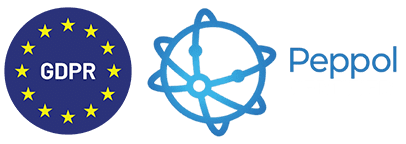As an HVAC business owner, you know that maintaining HVAC systems goes beyond ensuring comfort—it’s about maximizing your clients’ investment value. To help you refine your operations and provide top-tier service, we’ve developed a detailed HVAC maintenance checklist. This guide covers crucial aspects such as routine and seasonal maintenance, customer service strategies, business efficiency, and growth tactics to help you build a thriving HVAC business.
Routine Maintenance
Air Filter Management
Regularly changing or cleaning air filters is vital for maintaining system efficiency and enhancing indoor air quality. Educating your clients about this essential task will not only improve their system’s performance but also lead to significant energy savings.
Coil Maintenance
Ensure that condenser and evaporator coils are clean and free from dirt and debris, which can obstruct heat exchange and reduce system efficiency. Regular coil maintenance keeps HVAC systems running at peak performance, minimizing energy consumption.
Refrigerant Monitoring
Maintaining proper refrigerant levels is crucial for preventing system inefficiencies and avoiding unnecessary strain on the compressor. Regular inspections for leaks and prompt repairs are essential to keeping systems operating smoothly.
Lubrication of Mechanical Components
Properly lubricating moving parts, such as blower motors and fans, reduces friction, decreases energy consumption, and extends the lifespan of HVAC equipment. This preventive measure helps avoid costly repairs and prolongs the system’s functionality.
Seasonal Maintenance
Pre-Season System Checks
Conduct comprehensive system inspections before the onset of each heating and cooling season. Look for signs of wear and tear, secure any loose connections, and ensure thermostats are correctly calibrated to prevent unexpected failures.
Ductwork Evaluation
Inspect ductwork for leaks, corrosion, and blockages that could impede airflow and reduce system efficiency. When necessary, offer duct cleaning services to maintain optimal performance and ensure proper air distribution.
Customer Service
Scheduled Maintenance Plans
Offer your clients structured maintenance plans to keep their HVAC systems in top condition throughout the year. Regular service appointments help prevent major system breakdowns and strengthen customer loyalty by maintaining ongoing relationships.
Customer Education
Educate your clients on energy-efficient options, programmable thermostats, and smart HVAC technology. This not only helps them reduce energy costs and environmental impact but also positions your business as a knowledgeable and trusted partner.
24/7 Emergency Support
Provide round-the-clock emergency services to offer your clients peace of mind. Being responsive during HVAC emergencies differentiates your business from competitors and fosters customer trust and loyalty.
Business Efficiency
Adopting Digital Tools
Utilize digital tools and HVAC field service management software to streamline appointment scheduling, record management, and invoicing processes. These technologies reduce administrative workloads and enhance overall operational efficiency.
Ongoing Technician Training
Continuously invest in the training and development of your technicians. Ensure they stay updated on the latest HVAC technologies, safety standards, and customer service practices, enabling them to deliver high-quality service consistently.
Marketing and Business Growth
Boosting Online Presence
Develop a professional website and maintain active social media profiles to enhance your online visibility. Encourage satisfied clients to leave positive reviews and testimonials, which can improve your business’s reputation and attract new customers.
Networking and Industry Involvement
Join industry associations, attend HVAC conferences, and engage in networking opportunities to stay informed about industry trends and best practices. Networking can also lead to valuable partnerships and new business prospects.
By integrating these strategies into your HVAC business operations, you can significantly improve service quality, build a strong reputation, and cultivate enduring customer relationships. Focusing on consistent maintenance, superior customer service, and efficient business practices will pave the way for sustained success in the competitive HVAC industry.











